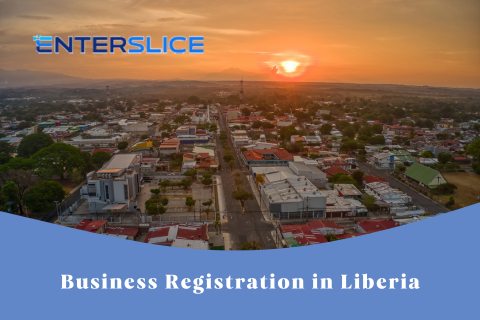Liberia, a growing economy in West Africa, offers vast potential for entrepreneurs and investors due to its rich natural resources, strategic location, and emerging industries. However, setting up a business in Liberia requires a thorough understanding of its legal and regulatory environment to ensure compliance and success. This guide outlines the essential steps and considerations for entrepreneurs looking for company registration in Liberia.
Key Steps to Set Up a Business in Liberia
1. Choose a Business Structure
Selecting the right business structure is a critical first step. Liberia offers several options:
- Sole Proprietorship: Ideal for small businesses and individuals, with simple setup and full control, but comes with unlimited liability.
- Partnership: Suitable for businesses involving two or more partners, allowing shared resources and decision-making but involving shared liability.
- Limited Liability Company (LLC): A popular choice for medium-sized businesses, providing limited liability to owners and a more structured governance framework.
- Corporation: Best for large-scale businesses with aspirations for significant growth, offering limited liability and easier access to capital through shares.
Tip: Consider your business goals, liability tolerance, and long-term plans when selecting a structure. Consulting with a legal expert can help you make an informed decision.
2. Obtain Necessary Licenses and Permits
Depending on the nature of your business, specific licenses and permits may be required.
- Sector-Specific Licenses: Industries like mining, telecommunications, and healthcare may require additional clearances.
- General Business Permits: These are needed for most businesses to operate legally.
The application process involves submitting documentation such as business plans, proof of identity, and evidence of capital. Non-compliance with these requirements can lead to fines or operational disruptions.
3. Register with the Liberia Business Registry
To formalize your business, you must register with the Liberia Business Registry (LBR).
- Required Documentation:
- Business name and structure details.
- Identification documents for owners and directors.
- Articles of incorporation for corporations or LLCs.
- Proof of address.
The LBR ensures that your business is recognized by the government, making it a crucial step in establishing legitimacy. Registration is also essential for opening corporate bank accounts and obtaining tax identification numbers.
4. Comply with Tax Laws and Regulations
Liberia’s tax system requires businesses to adhere to various tax obligations, including:
- Income Tax: Levied on profits generated by the business.
- Property Tax: Applicable for businesses owning real estate.
- Sales Tax: Charged on goods and services sold.
Filing accurate tax returns and meeting deadlines are critical to avoid penalties. Working with a local tax consultant can help ensure compliance and optimize tax efficiency.
5. Obtain Work Permits for Foreign Employees
If your business plans to employ foreign workers, obtaining the necessary work permits is essential.
- Documentation Requirements:
- Employment contracts.
- Proof of qualifications and experience.
- Valid passports and health clearances.
Employers must also comply with Liberian immigration laws, ensuring that foreign employees have valid visas and work authorization.
Key Considerations for Foreign Investors
1. Joint Venture Partnerships
Forming a joint venture with a local partner can provide valuable insights into the Liberian market and facilitate smoother navigation of regulatory requirements. However, it is essential to:
- Conduct due diligence on potential partners.
- Clearly outline roles, responsibilities, and profit-sharing terms in a legally binding agreement.
2. Intellectual Property Protection
Protecting your intellectual property (IP) is vital in a competitive market. Liberia provides mechanisms for registering:
- Patents: Protecting unique inventions.
- Trademarks: Safeguarding brand names and logos.
- Copyrights: Securing rights to creative works like designs or software.
Registering your IP with the appropriate authorities ensures exclusive rights and legal recourse against infringement.
Also Read: Eligible Business Structures for Company Registration in Turkey
Conclusion
Establishing a business in Liberia presents exciting opportunities, but it requires careful planning and adherence to local laws. By following the steps outlined above—choosing the right business structure, obtaining permits, registering with the LBR, and ensuring tax compliance—you can lay a strong foundation for your venture.
Foreign investors should also consider the benefits of joint ventures, the importance of IP protection, and the need to comply with labor laws. Seeking legal advice from local experts can further simplify the process and enhance your chances of success in Liberia’s promising business landscape.
